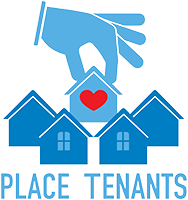Just because landlords own the property rented to another party doesn’t mean they can do whatever and whenever they want in regard to the property. There are things landlords are not allowed to do. Laws govern their actions, and legal consequences can be quite severe for offenders. Hiring a property management company is an excellent way to navigate landlord-tenant waters, and so does a working knowledge of landlord legal fundamentals. See below.
Enter a residence without proper notice. Thanks to the legal principle known as the “covenant of quiet enjoyment,” landlords must follow specific procedures to enter a renter’s residence. The procedure is based on privacy-based state statutes, the lease agreement, or a judge-made law. Typically, a landlord must give the tenant 24 hours written notice that includes purpose of entry along with its date and time. Emergency cases, like fires and floods, are exempted from proper notice.
Deny renting to service animals. Even if there is a no-pet rule in the lease, a landlord cannot prohibit service or emotionally support animals. This law is protected by the Americans with Disabilities Act.
Make personal use of the rented space. Just because the landlord owns the garage the tenant is renting doesn’t mean the landlord can appropriate the space for personal use. Same goes for using the backyard barbecue, storage space in the basement, or other areas of the rental.
Raise the rent any old time. A lease is a contract between a landlord and a tenant, a legally binding contract. Both parties must abide by the contract—the tenant pays the agreed upon rental amount within a certain timeframe and the landlord abides by the agreed upon amount.
Neglect reasonable repairs and maintenance. A landlord is responsible for a safe and inhabitable space. For example, a residence must have plumbing in good repair, lead-free paint, no roof leaks, a maintained electrical system, and working smoke alarms. Asking a tenant to make major repairs is illegal.
Most landlords are familiar with the obvious no-can-do’s for landlords, such as changing the locks without notice and discriminating against a tenant based on race, gender, nationality, disability, or family status, and that includes present or future tenants.
Landlord-ing is a big job. Keeping up on the everchanging laws can be overwhelming. Seeing things from a tenant’s point of view may help. Visit the National Housing Law Project or the U.S. Department of Housing and Urban Development, aka HUD, and select your state. FYI: If a landlord breaks the law, the first thing tenants are advised to do is file a claim with HUD.
Need help managing your rental properties. Call Place Tenants at 800-886-1193 or email [email protected]. We look forward to connecting with you.
iStock/Bank215






